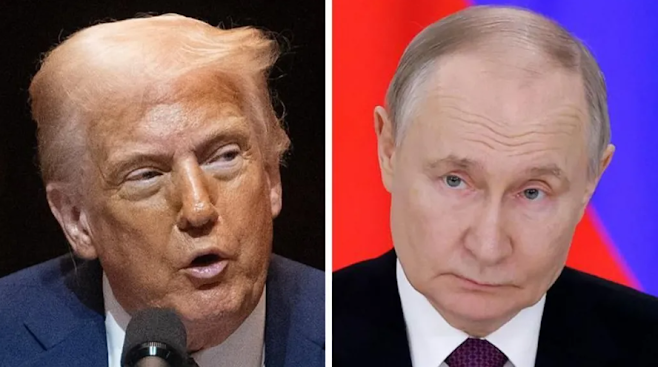President Vladimir Putin has rejected an immediate and comprehensive ceasefire in Ukraine, agreeing only to halt attacks on energy infrastructure after a call with U.S. President Donald Trump. The Russian leader declined to sign a month-long comprehensive ceasefire that Trump's team recently negotiated with Ukrainian officials in Saudi Arabia. He stated that a full truce could only be effective if foreign military aid and intelligence sharing with Ukraine were terminated. Ukraine's European allies have previously dismissed such conditions.
While the U.S. and Russian leaders did agree to initiate further peace talks in the Middle East immediately, the outcome of the call signifies a retreat in the Trump administration's stance from just a week prior. When a U.S. delegation met with Ukrainian counterparts in Jeddah last Tuesday, they successfully persuaded Kyiv to agree to their proposal for an "immediate" 30-day ceasefire covering land, air, and sea.
President Volodymyr Zelensky expressed that Ukraine was open to the concept of a truce focusing on energy infrastructure but wanted more details first. "I think it is important for us to have a conversation with President Trump so we can understand what the Russians offered the Americans and what the Americans offered the Russians," Zelensky stated.
Trump later posted on social media that the call with Putin was "very good and productive." He remarked, "We agreed to an immediate ceasefire on all energy and infrastructure, with an understanding that we will work swiftly towards a complete ceasefire and ultimately an end to this terrible war between Russia and Ukraine." The U.S. president noted that "many elements of a contract for peace were discussed," including the fact that thousands of soldiers are being killed, and both President Putin and President Zelensky want to see an end to the conflict.
Following last week’s discussions in Jeddah, Secretary of State Marco Rubio mentioned that "the ball" was in Russia's court after the Ukrainians accepted Washington's proposal for a full ceasefire. However, the White House’s statement following the Trump-Putin call did not reference that agreement with Kyiv. Instead, it indicated that the two leaders agreed the path to peace would start with a ceasefire concerning energy and infrastructure, followed by negotiations on a "maritime ceasefire in the Black Sea, a full ceasefire, and permanent peace."
The Kremlin's statement on the call highlighted what it described as a "series of significant issues" regarding enforcing any agreement with Kyiv. It reiterated that the cessation of foreign support and intelligence for Ukraine was a "key condition" for Russia.
Trump and Putin agreed to commence immediate technical-level talks aimed at a longer-term settlement, which the Kremlin specified must be "complex, stable, and long-term in nature." However, it's unclear whether this suggests further negotiations between the U.S. and Russia or bilateral talks between Russia and Ukraine.
Ukraine is likely to view the outcome of Tuesday's highly anticipated phone call as Putin playing for time while imposing crippling conditions on any resolution. The Russian leader seems to be testing Trump's willingness to restrict U.S. support to Ukraine while shifting the responsibility back to Kyiv.



